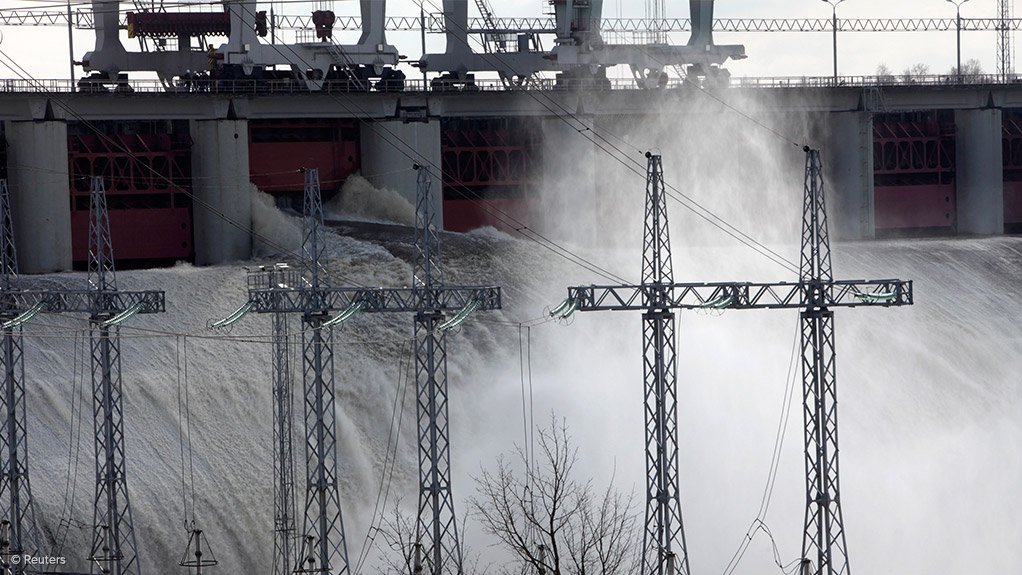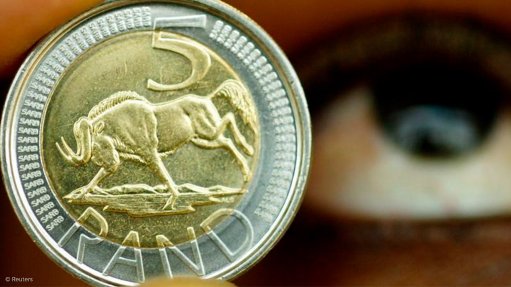Mozambique’s $80bn energy overhaul to tap Zambezi’s power
Mozambique is seeking to become one of Africa’s biggest hydropower producers and launch a green hydrogen industry.
The government plans to add 14 000 MW of hydropower capacity, with the bulk of that developed between 2030 and 2040, the government said in a 60-page Energy Transition Strategy seen by Bloomberg. A hydrogen program will be set this year, it said in the document, which hasn’t been released publicly.
The proposal is a blueprint of how one of the world’s poorest nations wants to harness its green-energy potential to boost growth and industrialize what, half a century after attaining independence from Portugal, remains a largely impoverished agrarian economy.
“Mozambique has vast energy assets,” said the government, which puts the cost of the transition at $80 billion by 2050. “The strategic use of these energy assets can accelerate the transition to a middle-income industrialized economy.”
The energy transition plan, while ambitious, bears similarities to those announced by South Africa, Senegal, Indonesia and Vietnam, which have collectively attracted funding pledges of $47-billion from some of the world’s richest nations.
At the heart of the proposal is the Zambezi River, Africa’s fourth longest. Already the country operates the 2 075 MW Cahora Bassa power plant on the river and a group led by TotalEnergies and Japan’s Sumitomo Corp. is building the 1 500 MW, $5-billion Mphanda Nkuwa dam.
In the decade to 2040, Mozambique aims to add 9 000 MW of hydropower and more the decade after, by attracting investment into plants, similar to the model it has followed with Mphanda Nkuwa, according to the document.
The government, which repeatedly stressed the need for private investment as it can’t fund the programs itself, also wants to establish industrial parks to use the clean energy. Billions of dollars in expected revenue from natural gas projects in the north of the country are anticipated to transform the economy, but construction has been delayed by an Islamist militant insurgency.
Such an expansion would allow Mozambique to compete with Ethiopia and the Democratic Republic of Congo in the provision of power from hydro resources. Ethiopia built a giant hydropower plant on the Blue Nile, while Congo has long proposed constructing Grand Inga, which would potentially be the world’s biggest hydro project.
One of the initial steps is to keep the 1 150 MW it sells to South Africa from Cahora Bassa when that contract ends in 2030.
While exports won’t be completely halted, the aim will be for Mozambique to use as much of its own resources to drive development and electrification, with 51% of its people having access to power now compared with 26% in 2017. Any export deals agreed to will be shorter and at better terms, the government said.
The southeast African nation also wants to extend its electricity grid, which in its current state prevents hydropower from Cahora Bassa reaching the capital, Maputo. An expansion would allow it to connect solar and wind plants. Initial costs are estimated at $2.54 billion.
Overall the target is to add 7 500 MW of solar power and as much as 2 500 MW from wind.
Other programs to decarbonise the economy include discouraging the use of firewood and charcoal for cooking by connecting more people to the grid and making liquefied natural gas easily available. Public transport will be switched away from diesel to cleaner alternatives.
By detailing its plans, Mozambique is joining several African nations trying to attract investment into renewable energy. South Africa and Uganda are among those that have drawn up programs to transition their energy industries away from fossil fuels.
Article Enquiry
Email Article
Save Article
Feedback
To advertise email advertising@creamermedia.co.za or click here
Announcements
What's On
Subscribe to improve your user experience...
Option 1 (equivalent of R125 a month):
Receive a weekly copy of Creamer Media's Engineering News & Mining Weekly magazine
(print copy for those in South Africa and e-magazine for those outside of South Africa)
Receive daily email newsletters
Access to full search results
Access archive of magazine back copies
Access to Projects in Progress
Access to ONE Research Report of your choice in PDF format
Option 2 (equivalent of R375 a month):
All benefits from Option 1
PLUS
Access to Creamer Media's Research Channel Africa for ALL Research Reports, in PDF format, on various industrial and mining sectors
including Electricity; Water; Energy Transition; Hydrogen; Roads, Rail and Ports; Coal; Gold; Platinum; Battery Metals; etc.
Already a subscriber?
Forgotten your password?
Receive weekly copy of Creamer Media's Engineering News & Mining Weekly magazine (print copy for those in South Africa and e-magazine for those outside of South Africa)
➕
Recieve daily email newsletters
➕
Access to full search results
➕
Access archive of magazine back copies
➕
Access to Projects in Progress
➕
Access to ONE Research Report of your choice in PDF format
RESEARCH CHANNEL AFRICA
R4500 (equivalent of R375 a month)
SUBSCRIBEAll benefits from Option 1
➕
Access to Creamer Media's Research Channel Africa for ALL Research Reports on various industrial and mining sectors, in PDF format, including on:
Electricity
➕
Water
➕
Energy Transition
➕
Hydrogen
➕
Roads, Rail and Ports
➕
Coal
➕
Gold
➕
Platinum
➕
Battery Metals
➕
etc.
Receive all benefits from Option 1 or Option 2 delivered to numerous people at your company
➕
Multiple User names and Passwords for simultaneous log-ins
➕
Intranet integration access to all in your organisation





















